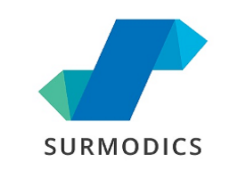The battle for Guidant that had been raging between Johnson & Johnson (J&J) and Boston Scientific is over, following an unbeatable $27.2 billion ($42 per share in cash and $38 in common stock) offer from Boston. The new entity is the world’s third largest medical device company behind J&J and Medtronic.
However, the merger did not run as smoothly as it might have done. Boston finally completed the acquisition 21 days later than planned, meaning it had to pay an additional 28 cents per share; the merger agreement made on 25th January included an allowance of $0.0132 in cash per Guidant share for each day past the 1st April until the closing date of the merger. By close of trading on Friday 21st April, trading in Guidant’s common stock had ceased. In a related transaction, Abbott closed its acquisition of Guidant’s vascular intervention and endovascular businesses.
To thank its employees and executive officers, Boston has approved ‘special recognition awards’ for those who were instrumental in the closing of the acquisition. The awards can be taken in a combination of either cash, stock options and deferred stock units or stock options and deferred stock units. The executives in line for an award include CFO Larry Best, who will receive either $625,000 in cash, 39,900 options and 13,600 deferred stock units or 79,800 options and 27,200 deferred stock units.
Nevertheless, not all executives are apparently pleased with the merger. Boston’s chief medical officer and senior vice president of clinical and regulatory affairs, Mary Russell, is to leave her position in July. Russell, a cardiologist who helped the company launch Taxus, is “leaving for personal reasons related to her interest in pursuing other opportunities that will allow her to translate basic scientific research into patient care”, said a Boston Scientific spokesman. Donald Baim has been named chief medical and scientific officer, in her stead.
Other fall-outs from the deal include the termination of an agreement with Cordis, through which Guidant used its sales force to promote Cordis’ Cypher stent. Cordis parent company J&J has always had the right to cancel the deal if there was a change in ownership.
In positive news, Boston has gained European regulatory approval to use its Taxus Liberte coronary stent for three additional purposes including restenotic lesions and total occlusions in patients with coronary artery disease, including heart attacks.












